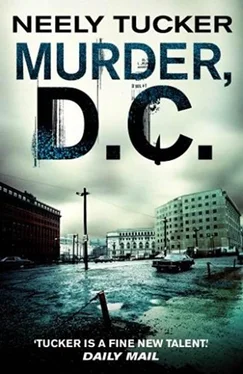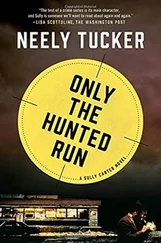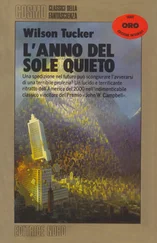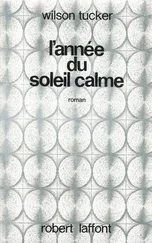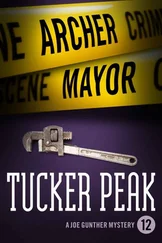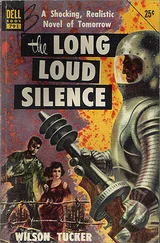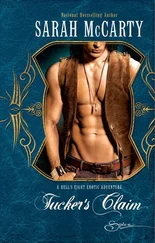“You don’t say.”
“It was a sort of cultural affiliation, the sort of which I would not expect someone like you to understand, with your inherent loathing of the wealthy. You wear your white-trash roots on your sleeve, like it’s some sort of badge of honor instead of being the disgrace that it is. When my legal firm-which I took over from my father-hired William, everyone thought we took him as the star and that we brought Delores, his wife, on board as extra compensation. In fact, William was the token. Delores was the hire, keeping the bond between the families.”
“I couldn’t give a fuck about that, counselor, and neither could you,” Sully said. “That your family and Delores’s traded in slaves is one thing. But you lied about it. Hid it. And that gave the past a power it never would have had otherwise. You two could deal with it, keep your self-superior faces on, but it destroyed Billy.
“Imagine it. Nice kid, a little fragile, starts doing a thesis about his wonderful family, the thing in life of which he was most proud. A paper that would further burnish the Ellison name. Instead, he finds slavery and a century of mendacity, including his own mother and godfather. He comes to you two, upset and shouting, and you both tell him to shut up and sit down. So what, in his mental illness, can he do about it? Why, he can end it. He can end the whole thing. He gets the family gun and goes to the Bend, the source of the family wealth, and kills himself. How very symbolic. How very obvious. No wonder Delores panicked, thinking I would discover it. You know the last thing she said, counselor? ‘You were going to find out.’”
Shellie looked up at him now, his face crumpling into the ruination that Sully, in a flash of insight, realized would define his features for the rest of his life, that would carry him to the grave. He did not speak, just sat there with a hollow-eyed stare, a vacant expression that was perhaps not too far removed from the one Billy Ellison had that day on the ice.
“Delores didn’t kill herself because her ancestors, and yours, dealt in slaves,” Sully said. “She killed herself because the two of you cooked up a false story about Billy. You two came up with this slander about him being a drug user and dealer, portraying him as the racist stereotype of his generation, in order to keep your secret. Delores killed herself because of what she’d done to her son after he was dead. You knew it. That’s why you were almost sick outside her funeral. You knew what you’d done to her.”
Stevens looked at him.
“You’re going to-to publish this?” It was a whisper.
“On the front fucking page.”
“But to-to what end?” Stevens said, the air hissing out of him. “Delores is dead. Billy is dead. You’d destroy her name just to expose me? My family?”
Sully hit his pager to summon Sly and Lionel.
He put Billy’s papers and the pistol box back in his briefcase. He snapped it shut. The bourbon wasn’t finished, so he took care of that, then threw the glass on a long arc into the dining room, where it shattered. Using his good leg first, he stood up and came across the room and leaned over Stevens sitting in his wing chair, still wearing the ridiculous visor and golf slacks. His tone, it was almost a whisper, like a priest intoning a benediction.
“You’n ask your God for mercy, absolution, forgiveness, all you want,” he said. “I’m not in that line of work. I will bury you, counselor, without mercy and without a second thought. You fucked over Billy Ellison, your godson, your emotionally damaged, frail, and vulnerable godson. And you, so help me Christ, will answer for it.”
Billy Ellison was not a homicide victim. He neither dealt in nor used narcotics. He was not in Frenchman’s Bend, the city’s most notorious open-air drug market, on the night of his death to settle business in that trade.
Instead, an investigation by this newspaper has found that Ellison, 21, committed suicide-with his grandfather’s handgun-as a desperate last measure to call attention to his family’s long-concealed ties to the former slave-trading post on the District’s leeward shore.
The story took shape on the screen, line by line, steady and assured. It laid out everything. It attributed the groundbreaking research on the Bend to Billy’s thesis. It came with speed and confidence. There was no bourbon involved, which, Sully thought, would make Alexis proud.
He wrote in a public file so that Eddie and the rest of management could read it as it took shape, but there were few interruptions. R.J. came by midafternoon and rapped on the top edge of the cubicle.
“The firm, it’s officially the Stevens Group, not the Stevens Firm,” he said. “And let’s make it Sheldon Stevens on first reference, instead of Shellie.”
Sully nodded.
“Also, after you file? Eddie wants you to stop in his office. I think he’s going to ask you to go to lunch. There’s going to be, I wouldn’t call it an apology, but there’s going to be something like it. A note in the personnel folder, retracting the suspension, reinstatement of lost pay, like that.”
“Okay.”
“Don’t be a prick about it.”
“Okay.”
“Don’t say, ‘I told you so.’”
“All right already.”
R.J. left and he went back to work.
After a while, Sully called John Parker. John listened to what he’d found out, cursing twice, and then Sully asked him for comment.
There was a pause, and then John said, “Okay, let’s go with this. ‘One of our first lines of inquiry was suicide, and the Ellison family and their attorney, Mr. Stevens, repeatedly assured us there was no such possibility. There was no mention of Billy Ellison’s mental instability or of a suicide note or of a pistol taken from the family home. Mrs. Ellison and Mr. Stevens informed us they were hiring private investigators to assist us, in whatever fashion possible, with solving Billy’s murder. That was the term they used repeatedly. ‘Murder.’ We will take these reports into account and revisit our investigation.’”
When he finished, he told Sully he was going to talk off the record and Sully said sure.
“I’ll get that prick’s law license for this,” he said. “He’s an officer of the court. I could go for obstruction of justice, but that would go to trial and take forever and he’d probably beat it. But the law license, that’s a matter before the bar. That’s going down.”
“What about the other thing?”
“Which other thing?”
“The gun. Billy’s gun. It was used to kill the Hall brothers.”
John jumped on that.
“Yeah, no shit. Somebody had to pick it up after Billy used it. That means, it happening in the Bend, that it couldn’t have been the South Caps. It means somebody already in the Bend, in the M Street Crew, picked it up, threw Billy’s body in the water. That same person then used it to kill the Hall brothers. Which means it was an inside job.”
“That give you a suspect?”
Another pause.
“By name, for me to tell you, right now, even off the record? No. But whoever turns up running the Bend in a couple of weeks, it’s going to be him. That’s not a long list of people. Didn’t I tell you all this was going to tie into this new stuff getting piped in down there? Well. There you go.”
“The way all that worked out,” Sully said, “it’s curious, isn’t it?”
There was a long pause.
“Yeah,” John said. “Curious, brother. It is. That’s just what I was thinking.”
***
By late afternoon, with deadline looming, he was down to the kicker of the story. It wasn’t difficult. Sorting through the papers scattered across his desk, he retrieved the partial note the late Billy Ellison had left behind. It wasn’t the final note, no, but it was a rough draft, and that was good enough. Elliot had come down to the paper and verified it as Billy’s handwriting.
Читать дальше
